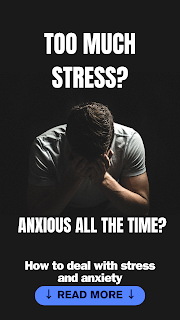Anxiety and depression are among the most common mental health disorders, affecting millions worldwide. The World Health Organization (WHO) reports that approximately 280 million people globally experience depression, while anxiety disorders impact around 301 million individuals. Given the widespread prevalence, finding effective coping mechanisms is crucial. This article outlines scientifically supported strategies that can help manage symptoms of anxiety and depression, allowing for better emotional regulation and improved daily functioning.
Understanding Anxiety and Depression
Both anxiety and depression involve dysfunctions in brain chemistry, particularly with neurotransmitters like serotonin, dopamine, and norepinephrine. Anxiety often triggers a hyperactive amygdala, the brain’s fear center, while depression is associated with reduced activity in the prefrontal cortex and an overactive stress response system. These biological mechanisms underscore the importance of structured coping skills to help regulate emotions and restore balance.
Cognitive-Behavioral Coping Strategies
Cognitive-Behavioral Therapy (CBT) is one of the most effective, evidence-based treatments for both anxiety and depression. The following strategies are derived from CBT principles:
1. Cognitive Restructuring
Cognitive restructuring involves identifying and challenging distorted thoughts that contribute to anxiety and depression. Negative thought patterns, such as catastrophizing (“Everything will go wrong”) or all-or-nothing thinking (“If I fail, I’m worthless”), can be replaced with balanced, rational perspectives. Studies show that cognitive restructuring can significantly reduce symptoms by altering maladaptive neural pathways.
2. Behavioral Activation
Depression often leads to inactivity, reinforcing feelings of hopelessness. Behavioral activation encourages engagement in rewarding activities, even when motivation is low. Research suggests that increasing positive reinforcement through pleasurable activities can counteract depressive symptoms and improve mood over time.
3. Exposure Therapy for Anxiety
For individuals struggling with anxiety, avoidance behaviors can perpetuate the cycle of fear. Exposure therapy involves gradual, controlled exposure to anxiety-provoking situations to reduce sensitivity over time. Studies confirm that exposure-based strategies can help retrain the brain to respond to threats more adaptively.
Mindfulness and Acceptance-Based Approaches
Mindfulness-Based Cognitive Therapy (MBCT) and Acceptance and Commitment Therapy (ACT) incorporate mindfulness to improve emotional regulation and reduce symptom severity.
4. Mindfulness Meditation
Mindfulness meditation trains the brain to focus on the present moment rather than ruminating on past regrets or future anxieties. Neuroscientific research shows that regular mindfulness practice can increase gray matter in brain regions associated with emotional regulation and decrease amygdala reactivity.
5. Radical Acceptance
Instead of resisting painful emotions, radical acceptance involves fully acknowledging distress without judgment. This practice is particularly effective for individuals with treatment-resistant depression and anxiety disorders, as it reduces the emotional suffering that stems from avoidance or suppression.
Lifestyle Modifications for Mental Health
6. Regular Physical Exercise
Exercise is a powerful antidepressant. Studies indicate that aerobic exercise increases endorphins and brain-derived neurotrophic factor (BDNF), which supports neuroplasticity and brain health. Moderate-intensity activities, such as jogging, swimming, or strength training, can alleviate both anxiety and depression.
7. Balanced Nutrition
Diet plays a crucial role in mental health. Omega-3 fatty acids, found in fish and flaxseeds, support neurotransmitter function. A Mediterranean-style diet rich in whole foods, lean proteins, and healthy fats has been associated with lower rates of depression.
8. Sleep Hygiene
Chronic sleep deprivation exacerbates anxiety and depression. Establishing a consistent sleep routine, limiting screen exposure before bedtime, and avoiding stimulants like caffeine can significantly improve sleep quality and emotional stability.
Social and Emotional Coping Strategies
9. Strengthening Social Connections
Loneliness can intensify symptoms of depression and anxiety. Research highlights the protective effects of strong social support networks. Engaging in meaningful conversations, joining support groups, or seeking therapy can provide emotional validation and coping resources.
10. Journaling and Expressive Writing
Writing about thoughts and emotions has been shown to reduce symptoms of anxiety and depression. Expressive writing promotes cognitive processing and provides insight into stressors and triggers, making it an effective therapeutic tool.
11. Gratitude Practice
Shifting focus from distress to positive aspects of life can improve overall mood. Studies suggest that keeping a gratitude journal increases dopamine and serotonin levels, enhancing emotional resilience.
Seeking Professional Help
While self-help strategies are valuable, they are not a substitute for professional treatment. Cognitive-behavioral therapy, medication management, and psychiatric care are essential for individuals with severe or persistent symptoms. If symptoms interfere with daily functioning, consulting a mental health professional is crucial.
Final Thoughts
Anxiety and depression are challenging conditions, but evidence-based coping strategies can significantly improve mental well-being. By integrating cognitive, mindfulness-based, lifestyle, and social strategies, individuals can cultivate resilience and regain control over their mental health.
To take your self-care routine to the next level, check out ReCharge Your Life—a structured, science-backed tool designed to help you track your emotions, set goals, and implement effective coping strategies. Start your journey toward emotional well-being today!








